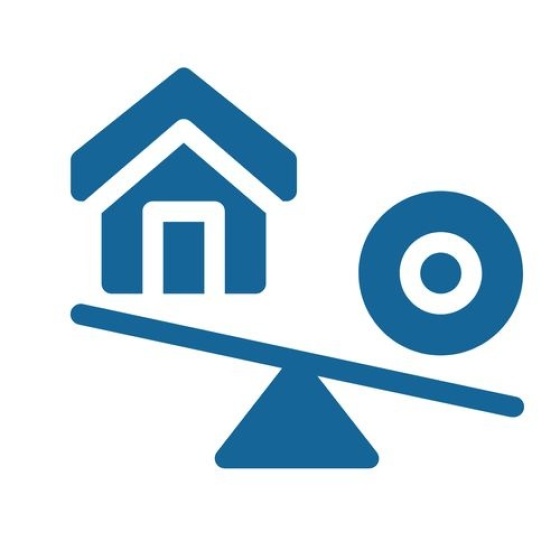RENT 2025 - Meet us at booth D33 to discover our new AI agent!

- What Lessons Can Be Drawn from the Real Estate Market in 2024?
- Between a historic drop in transaction volumes, price adjustments, and the impact of public policies, real estate professionals have faced yet another challenging year.
-
Since the summer of 2022, the crisis affecting the real estate sector has impacted not only the industry’s various stakeholders but, above all, French citizens in their ability to secure housing. Highly sensitive to both economic and political stability, the real estate market in 2024 has faced the consequences of political uncertainty while simultaneously benefiting from the easing of monetary policy and, consequently, from lower mortgage rates.
A New Decline in the Number of Transactions
For the third consecutive year, the number of property sales in France has fallen. According to the latest data, 2024 is expected to record around 775,000 sales of existing homes (compared with 872,000 in 2023), representing an 11% drop in one year and a 36% decline compared to the 2021 peak. In detail, the first half of the year saw a sharp fall in sales, while the second half showed signs of recovery, suggesting more positive prospects ahead. As Loïc Cantin, President of FNAIM, explains: “The year 2024 has been a pivotal one for the real estate market, marked by deep adjustments but also encouraging signs of stabilization.”
Toward a Stabilization of Price Declines
After a 4% decline in 2023, property prices continued to decrease throughout 2024, although they have shown signs of stabilization in recent months. On average, prices are expected to record a -1.3% drop for existing houses and -1.6% for existing apartments nationwide. This decline is widespread across the country, reflecting a genuine structural trend.
However, indicators for the last quarter offer reasons for optimism: prices have remained relatively stable across regional France, and in Île-de-France, the annual decline should settle at around 3%. While prices are still trending downward, the pace has slowed significantly compared to previous years.
The Impact of Public Policies
In 2024, public policies continued to influence the market — from the implementation of rental bans on energy-inefficient “passoire thermique” properties, to the reduction of tax benefits (such as the Pinel Law) and ongoing discussions around the expansion of the Zero-Interest Loan (PTZ) and the reform of the Non-Professional Furnished Rental (LMNP) regime. The current political instability and short-term uncertainty prevent both buyers and sellers from making decisions confidently, resulting in a sense of standstill across the market.
The Struggling New-Build Market
The French new housing market is facing an unprecedented crisis. In 2024, the residential construction sector was hit hard by a drastic decline in both sales and housing starts. This alarming situation stems from a combination of economic and regulatory factors: soaring construction costs, persistently high interest rates, and increasingly stringent environmental standards have created a heavy burden for the sector.
Summary of Trends in Residential and Rental Markets
The residential market remains under pressure despite falling transaction volumes, as demand continues to hold strong in attractive areas. The slowdown in inflation and lower credit rates have encouraged households that had postponed their real estate projects to regain confidence. In recent months, many have taken this opportunity to renegotiate offers or reposition themselves on properties better aligned with their budgets. This gradual return of buyers has led to an uptick in preliminary agreements and increased activity in agencies — marking the beginning of a positive momentum for the market.
In the rental market, 2024 saw rent increases in most major cities. However, rent control policies in high-pressure zones have limited these rises. This situation has prompted investors to turn toward cities with more flexible regulations or to optimize their assets through furnished or seasonal rentals, while still navigating evolving public policies in this area. In most large cities, rental pressure remains high — particularly in Rennes and Lyon, which top the national rankings — while Paris continues its comeback after having completely dropped out during the pandemic.
A Gradual and Encouraging Recovery for 2025
According to the latest forecasts from FNAIM, the real estate market should see a slight improvement in 2025, with a 6% increase in transaction volume, reaching approximately 825,000 sales. Prices are expected to stabilize in the first half of the year and could rise again by +1% to +2% in the second half.
The market’s recovery will depend on several key factors, beginning with a favorable evolution of mortgage rates. After peaking at 4.2% in December 2023, rates dropped significantly to 3.37% in November 2024. This downward trend is expected to continue in 2025, with projections around 3%, offering households renewed purchasing power. Let’s hope that public policies — particularly the announced increase in notary fees — do not hinder this rebound.
In a market more demanding than ever, success will depend on a deep understanding of client needs and a personalized approach to guidance and support.
Questions? Need real estate training or coaching? Our teams are here for you — let’s talk.


